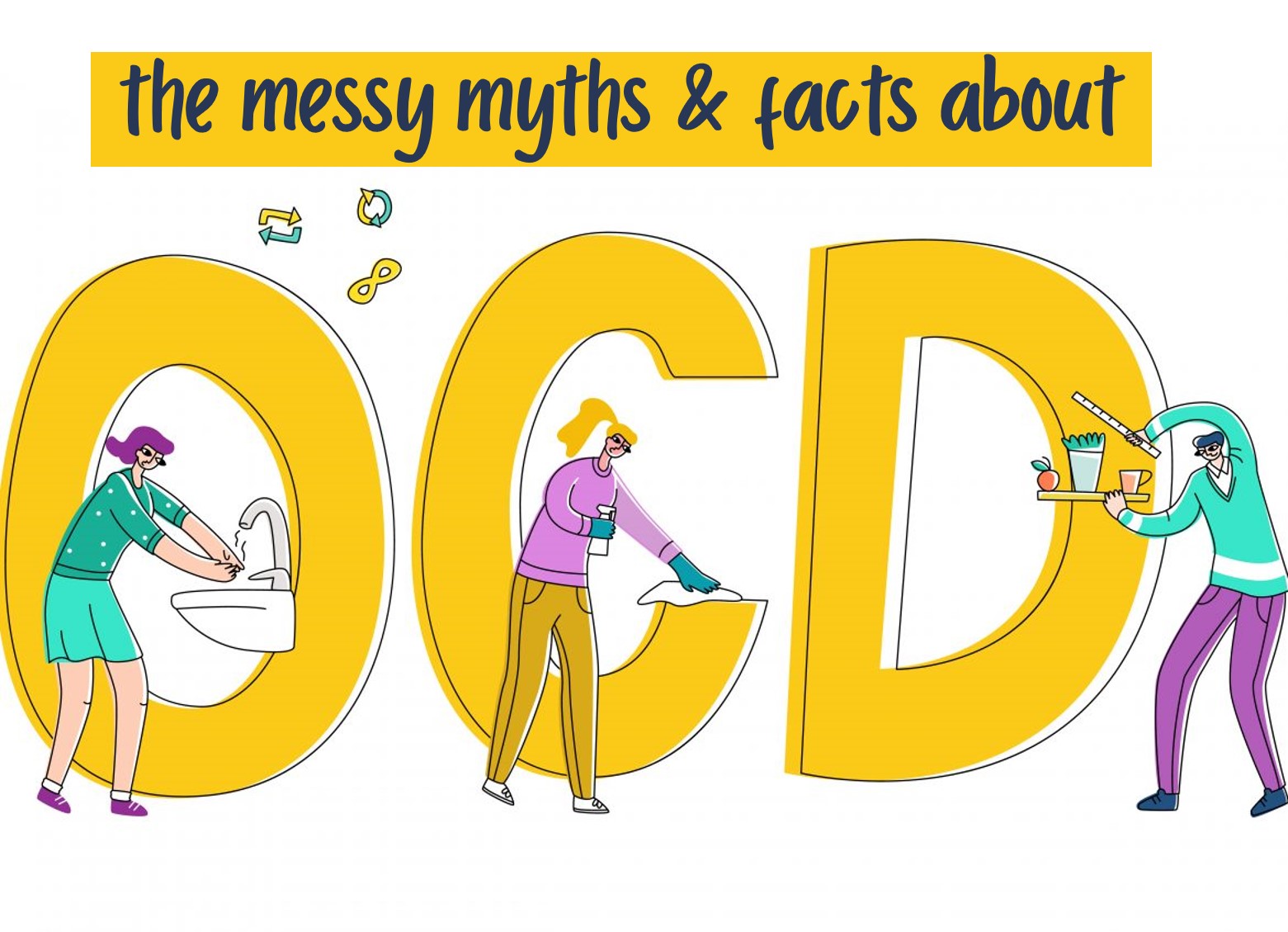The Messy Myths & Facts About Obsessive Compulsive Disorder (OCD)
“I need to go organize my weekly planner. I’m so OCD.”
“My room is so perfect. I’m so OCD.”
“I’m obsessed with color-coding my pens and ordering my books by size and color. I’m so OCD.”
Heard this all the time, right? OCD, short for obsessive compulsive disorder, is a widely misunderstood condition. Why do most people believe that OCD is just about a hyper-organized desk, neat freak or color-coordinated closet?
So, if OCD isn’t all about this hyper behaviour, what is it? Below are 7 common myths and the facts to debunk them.
Myth 1: All neat freaks have OCD.
Fact: Cleaning is just one of many OCD-related compulsions.
Many people with OCD have a fear of contamination. To relieve these fears, they compulsively wash their hands, use sanitizers, clean their home/room to excess. Not all people with OCD have obsessions about cleanliness.
People with OCD can even be messy. In many cases, a desire for a clean or organized space is merely a personality trait or a way to manage stress. Cleanliness often has nothing to do with OCD or any other diagnosis.
Other common compulsions include hoarding items, checking and rechecking that you didn’t make a mistake, fearing something bad such as a fire or accident, and repeating routines such as going in and out of a door.
Myth 2: OCD is a mental superpower that can make you brilliant.
Fact: OCD is not a superpower. It gives the person racing and uncontrolled thoughts.
This comes from some of the movies. Yes, that is true that some people with OCD can focus on unusual details. This is because of the anxiety disorder that drives OCD and nothing like superpower. Yet again “genius” is not a feature of OCD.
Myth 3: People with OCD will have the same compulsive behavior their entire life.
Fact: OCD symptoms can change over time.
Both compulsions and obsessions can change with time. Age, culture and life experiences can affect the theme or symptoms.
For example, a 12-year boy with OCD may fear about losing of their parents. While at the age of 28, the same person may fear the loss of spouse. The specific worry has changed, but the underlying fear of losing the loved ones, has not.
Myth 4: Bad parenting causes OCD.
Fact: Bad parenting is rarely the cause. A complex interaction of factors causes OCD.
Parenting – even when it’s imperfect doesn’t cause OCD. So, attempts to blame the parents can harm the treatment by making both parents and the child feel guilty.
OCD is a complex diagnosis with many potential causes. People with history of trauma and neglect can also contribute to obsessions and compulsions.
Myth 5: OCD is a woman’s disease.
Fact: It may seem but research shows it affects both gender at the same rate.
According to the International OCD Foundation, OCD affects men, women, and children and of all ethnic, racial, and economic backgrounds at the same rate.
Myth 6: People with OCD are picky and controlling.
Fact: OCD is a mental health condition and not a personality trait.
People with OCD have a wide range of personalities. Some are stubborn and controlling with others. Other people with OCD are easy-going around others and strict only with themselves.
Myth 7: OCD is not treatable.
Fact: OCD is very treatable.
It is true that OCD won’t get better on its own. The fact is that many people don’t seek medical help or consult psychiatrist for OCD treatment, because they are embarrassed. The first line of OCD treatment is exposure and response prevention.
There are many treatments that can help with both obsessions and compulsions. These include:
- Psychotherapy
- Cognitive behavioral therapy (CBT)
- Relaxation techniques
- Group therapy – (talking to others with OCD make them feel less lonely)
A mental health doctor or psychiatrists is someone who can help such patients create a comprehensive treatment plan for their unique needs.
Think you have an OCD?
It is not possible to accurately diagnose OCD over the internet research. Find a psychiatrist nearby. Only a mental health specialist can determine whether your symptoms represent OCD or another condition.


